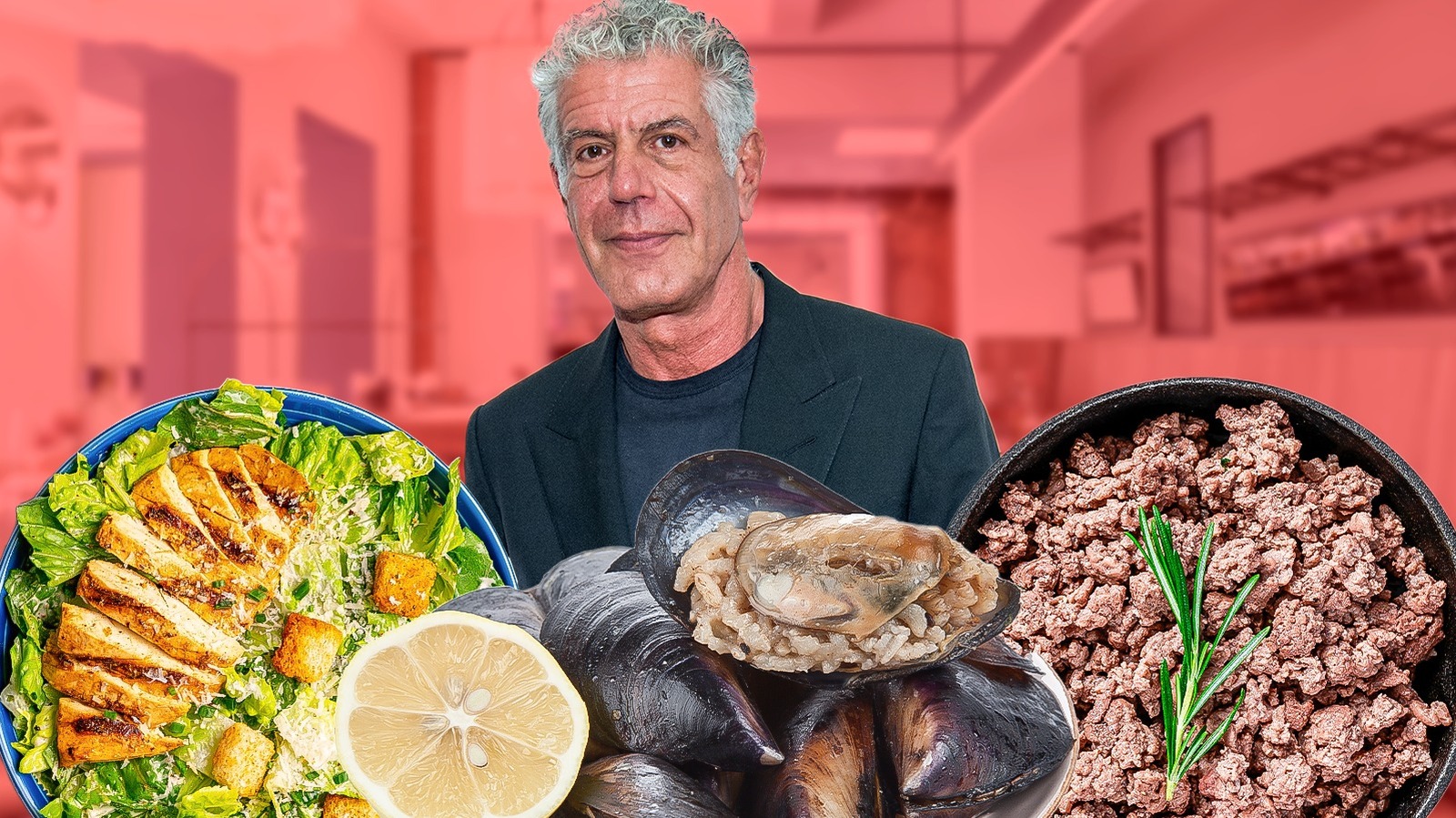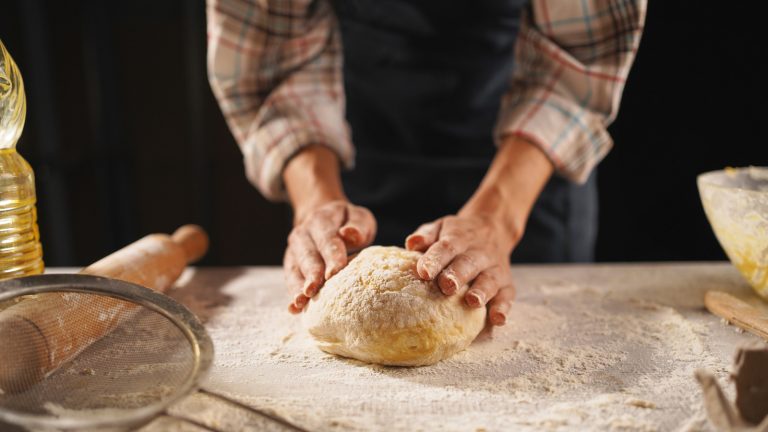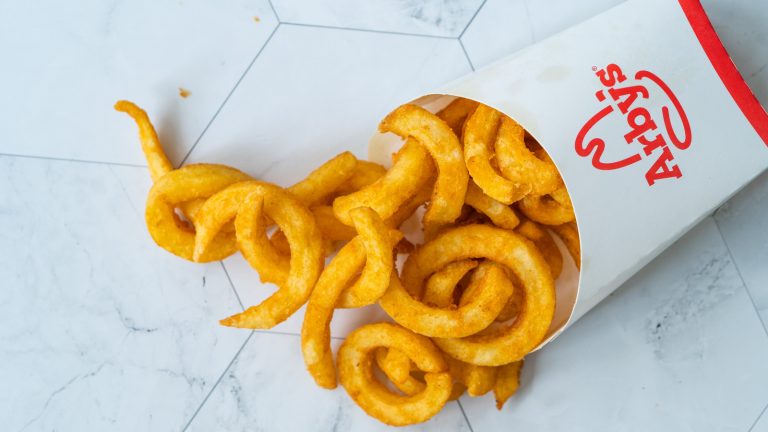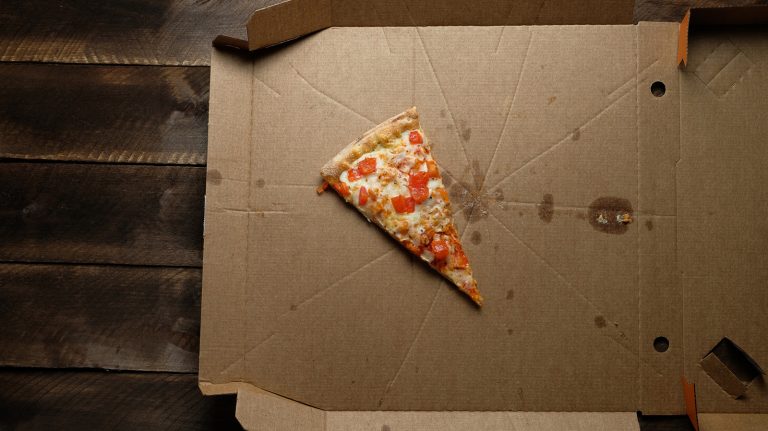Anthony Bourdain had a lot of strong opinions, from his well-documented aversion to vegans to his staunch love of street food that played out throughout his many television shows. For many long-time Bourdain fans, hearing “Anthony Bourdain” immediately conjures up images of the man prowling city avenues for late-night snacks. Ever a man of the people, his journeys often ended with him laughing with locals over bowls of ramen, platters of fried tidbits, or other regional specialties.
Perhaps it’s unsurprising that Bourdain was unfazed by Michelin Stars, given his affinity for the authentic, the homemade, the greasy, and the accessible. Bourdain’s frank storytelling and adventurous spirit have inspired many to become travel writers, culinary tourism professionals, food writers, and chefs. His words had sway on the worldwide stage, and his focus on the hands behind the cuisine brought a heartfelt tone to an industry once led by high-end critics. Quick to demystify the culinary world, his writing clued the public in on dining dos and don’ts that food writers and chefs were privy to, ensuring that everyone could eat out well. Some of his most famous advice was about what not to do — so, here are 14 things that Bourdain advised readers not to order at a restaurant.
Bargain sushi
According to Anthony Bourdain’s book, “Kitchen Confidential,” he “[C]an’t imagine a better example of Things To Be Wary Of in the food department than bargain sushi.” The author was commenting specifically on a sign he saw outside of a Japanese-Chinese restaurant advertising the dish at a discounted price near him. However, he warned his worldwide fanbase to be cautious when considering on-sale sushi, regardless of the location.
Modern sushi is famously made with high-quality, fairly expensive seafood. It’s also crafted with premium preparation methods that often require extensive training and skill or specialty supplies. It’s a technical and high-end dish, so cheaper prices indicate that a compromise was most likely made somewhere. This could mean lower-quality ingredients were involved, inauthentic preparation methods were utilized, or less sustainable fish were used.
Regardless of where that quality was shaved off, it’s good to be careful when considering whether or not to buy anything involving raw meat. Many remember 2024’s viral sushi moment at a sushi bar in Seattle, when TikTok creator Keith Lee filmed himself eating one of the rolls, only for users to spot a worm wriggling along the raw fish. With Google listing the price range of the spot between $10 and $20, it’s certainly a bargain in the expensive world of sushi — perhaps low prices really are one of the sushi bar red flags to watch out for.
Brunch
Anthony Bourdain had many reasons for avoiding brunch. Among them is the fact that it tends to be a way for chefs to use up their leftovers from Friday and Saturday services. Not only will dishes made from leftovers not taste as good or have as much value price-wise, but they also come with the risk of food poisoning if they weren’t stored properly or kept too long. Popular brunch items such as hollandaise sauce are also, according to Bourdain, seldom made to order and are playgrounds for bacteria.
Brunch is also when the lesser group of cooks tend to get scheduled, such as newer chefs or what Bourdain calls the “B-Team.” No one likes being on brunch duty. You’re working with a lot of items from days past, so there’s less room for creativity. It often feels like you’re there to help the head chef and restaurant owner use up what they couldn’t sell. For this reason, it’s usually the newer chefs who get assigned these shifts. With less experience comes less know-how as far as preparation, storing, and food safety goes. It’s just overall a riskier meal to dine out for unless it’s a restaurant’s specialty.
Truffle oil
In a 2016 interview with First We Feast, Anthony Bourdain called truffle oil “industrial waste” and “dreadful.” The author followed up his comments by telling the interviewer that truffle oil doesn’t have any real truffles in it. Studies show that the item doesn’t even have natural truffle aroma included in the ingredients. In fact, the product is usually made with infusions, olive oil, or synthetic flavoring. Yet truffle oil still comes with a steep price tag, as if its expensive namesake is really involved.
Authenticity is certainly an issue, as reflected in studies that explore certification methods. Labeling is often riddled with inconsistencies and even lies, such as truffle-flavored olive oils claiming they only have “natural truffle flavors” within. If you like the flavor, go ahead and order truffle oil. However, based on the latest studies and the warning from Bourdain, steer clear if your goal is to get a taste of real truffles. Clearly, the price doesn’t reflect the actual value.
Anything well-done
According to “Don’t Eat Before Reading This,” an article in The New Yorker written by Anthony Bourdain in 1999, chefs have a tradition called “save for well-done.” In other words, meat that they would otherwise throw out is saved for customers who order a cut well-done. Overcooking meat can disguise toughness, bad smells, or otherwise unsavory elements. It also saves restaurants a lot of money by not throwing out undesirable meat, as long as that protein can pass for edible and won’t cost them customers. So while eating under-cooked meat is dangerous, you may not want to order a well-done steak due to other risks.
Additionally, even aside from food safety concerns, chances are that chefs aren’t going to use the best cuts of meat for those who want theirs overcooked. Many culinary professionals consider well-done meat to be improper, as it turns the meat grey and chewy. The chef will not want to turn a tender prime cut into something tough, so they’ll grab the least desirable meat and, in the words of Bourdain (via “Kitchen Confidential”), “serve it to some rube who prefers his meat or fish incinerated into a flavourless, leathery hunk of carbon.” Well-done meat doesn’t just mask imperfections — it also masks flavor, mouthfeel, and quality. It’s for these reasons that, though Bourdain was a fan of ugly food, well-done steaks were definitely not one of them.
Mussels
Unless Anthony Bourdain saw how they were stored or was personally acquainted with the chef who made them, mussels were off the menu when he ordered out. Being a Seattle area resident, this one hurts. However, I can attest to just how fine the line is between the best mussel you’ve ever tasted and one that will send you retching. I grew up near Penn Cove, home to the famous Penn Cove mussels of Whidbey Island in Washington. So, I might be a mussel snob, but I believe a mussel is either fantastic or terrible — there’s no in between.
Outside of issues regarding taste, food safety was Bourdain’s main reason for staying away from mussels. He said that the shelled delicacy is often prepared and kept improperly, stating in his book that “most cooks are less than scrupulous in their handling of them.” It’s good to be cautious. Most cases of paralytic shellfish poisoning (PSP) occur from people eating clams or mussels, so even bad sourcing can make one sick.
Ground beef
In “Kitchen Confidential,“ Anthony Bourdain also suggests that dishes with ground beef, such as shepherd’s pie and chili, may be heavily comprised of leftovers. Different foods can keep for different amounts of time, and it’s critical that they’re stored at proper temperatures. Even fine dining restaurants get so busy that safety efforts such as temperature checks get pushed back.
But why are dishes with ground beef often just reworked leftovers? These menu items are usually very sauce-heavy or busy which, similar to the way that overcooking masks imperfections, disguises the look and taste of older meat. It’s also harder for customers to tell the age and quality of ground beef, as the grinding process can hide the meat’s quality. These details make it easy for chefs to use ground meat for a longer period of time, so menu items like chili come in handy when leftovers need to go. His wariness of this thought process is why Bourdain never ordered ground beef.
Punny menu items
Anthony Bourdain was famously all about authenticity and tracking down locally-loved spots. When chatting with First We Feast, the author emphasized this love of authentic dining experiences. His conversation was grounded in a desire to find food that was reflective of local palates and traditions.
As part of this, Bourdain wasn’t just eyeing the ingredients and dishes being served up at establishments. He would also glance at the menus in his quest to find something original and truly local. He stated that if a menu is filled with puns, it’s unlikely to serve authentic dishes. He would advise to look for restaurants that display a “tight menu with a clear vision at work,” and said that there shouldn’t be a focus on having “something for everybody.” Cute language tipped him off that an eatery wouldn’t be any good or authentic, so diners should follow suit and steer clear of pun-using businesses.
Swordfish
Anthony Bourdain had a lot of advice when it came to seafood. He famously stated that he would never order fish on a Monday, citing that the seafood would be four or five days old at this point. Though Bourdain later regretted his Monday fish warning, as fishmongers are now open through weekends — here in Seattle, my local purveyors operate every day of the week — he sticks to his stance on never ordering swordfish due to advice from his own seafood purveyor.
According to Bourdain, the fish is often riddled with parasites, including worms that are as long as 3 feet. This disturbing reason behind Bourdain’s avoidance of swordfish is something to keep in mind, particularly if you’re a vulnerable diner with a weaker immune system. Warming oceans are spiking rates of parasites in the species, so the risk is even higher than when Bourdain first issued his warning. Also, as swordfish has notoriously high mercury content, those who are pregnant should especially take note.
Kobe sliders
When asked by First We Feast if there’s anything that would indicate that a restaurant isn’t authentic, Anthony Bourdain replied that Kobe sliders are a “bad sign.” He stated that they have a “certain douche tone.” Atmosphere was a major draw or repellent when it came to which eateries Bourdain chose to frequent or highlight — on his shows, he often dedicated considerable time to discussing the clientele, decor, setting, and overall vibe of the businesses he ate at. In the 2016 interview, he doubled down on this, stating that diners can tell if a restaurant will be authentic by the customer base. Bourdain said that “a bunch of high-fiving white guys, talking loud, trying to impress each other” was a tell-tale indicator of inauthenticity.
Bourdain had big-picture complaints with Kobe sliders as well. When asked what foods he blamed “for everything that’s wrong with America,” he named the dish. The author complained that Kobe loses its beloved texture when it’s ground up and served as a burger. He reasoned that since the quality suffers when prepared as miniature patties, Kobe slider purveyors are “just selling status there and bragging rights.”
Chicken
Anthony Bourdain once wrote that those who say pigs are unclean “have obviously never visited a poultry farm.” In the aforementioned New Yorker article “Don’t Eat Before Reading This,” he stated that chicken is often mishandled, spoils swiftly, and contaminates nearby food with salmonella. According to the Centers for Disease Control and Prevention, salmonella kills 420 Americans each year and is behind 26,500 hospitalizations and 1.35 million infections annually. Chicken and turkey are responsible for 23 percent of these incidents. So, it’s fair to proceed with caution.
Aside from cleanliness and health reasons, Bourdain mentioned that chefs tend to be bored by the meat. Chicken is a filler for many chefs, and the author states in the article that it “occupies its ubiquitous place on menus as an option for customers who can’t decide what they want to eat.” It’s for less adventurous or enthusiastic diners, such as children or those with pickier palates. But Bourdain does distinguish between American and European chickens, stating that poultry in the United States is “slimy and tasteless” in comparison.
House bread
Although he doesn’t explicitly tell readers not to eat it, Anthony Bourdain’s article in The New Yorker reveals that many restaurants recycle house bread. At the time of writing, there were new reports about hidden cameras picking up on the scandalous practice — when customers didn’t eat all of the bread in the basket on their table, it was returned to the kitchen, placed in another basket, and brought to a new table. Sharing that this “wasn’t news” to him, Bourdain called this reuse “a fairly standard practice” and a longtime industry-wide “open secret.”
It’s hard to assess if this is still standard since restaurants are unlikely to admit to this practice. However, the Food and Safety Modernization Act (FSMA), including the Food Code from the Food and Drug Administration, bans restaurants from re-serving food that was served to another customer. This was signed into law in 2011, over a decade after Bourdain’s words warned against bread recycling. So at the very least, it’s probably less likely to be happening. Restaurants are finding other ways to reduce waste these days. If you’re worried, though, you can look for signs that the restaurant is complying with other regulations. Clean bathrooms, tables, and flatware are great indicators.
Hollandaise
Aside from his brunch-specific notes about hollandaise included in “Kitchen Confidential”, Anthony Bourdain had other qualms with the sauce. He’s also said that a lot of dining institutions reuse the butter left behind on tables for hollandaise sauce. He said, as a diner, it makes more sense to worry about that than the recycling of bread.
Bourdain wasn’t alone in his accusations. Articles in The New York Times just a decade earlier alleged that, despite regulations, butter was reused regularly. Times have hopefully changed. Due to the previously mentioned FSMA of 2011, this is now illegal, so dining institutions are hopefully abiding by the stricter nationwide laws. Restaurants use a lot more butter than you may think, so while reusing it would certainly save them money, it could cost them precious credibility. News spreads quickly online when someone gets sick or a restaurant serves bad food. Should they get caught repurposing table butter, it could put a serious dent in their sales and even shut them down. But, if you’re concerned that restaurants are risking it, only order hollandaise and butter-intensive items at eateries that are visibly clean and up to code.
Chicken Caesar salad
Anthony Bourdain told First We Feast that if you see chicken Caesar salad on a restaurant’s menu, it’s because the chef compromised to make more sales. He said, “They didn’t put that up there because they love chicken Caesar,” so the salad lacks the heart of other dishes on the menu. Bourdain wanted to eat at restaurants where a chef knew what they were good at and enjoyed making, and did it “relentlessly.” He cautioned against businesses that attempted to “be everything to everybody,” and shared that chicken Caesar is a way that many try to do this.
This likely goes back to the idea that chicken is not the most flavorful meat and is suitable for picky eaters rather than chefs wanting to hone their craft. But Caesar is one of the most popular salads in the U.S. and among consumers’ top 20 favorite dishes of all time, according to YouGov. Regardless of Bourdain’s reasoning or preconceived notions about chicken, there’s definitely potential profitability in including chicken Caesar on the menu. Diners should keep in mind that sales, rather than quality, might be the motivating reason behind a restaurant’s service of the dish.
Steak if sushi is also on the menu, and vice versa
In his interview with First We Feast, Anthony Bourdain said that if a restaurant serves both steak and sushi, that’s a “warning sign” that it won’t be any good. The author was famously against the “something for everybody” mentality of restaurants cranking out popular, inauthentic dishes. The presence of both sushi and steak, both wildly different dishes, put a restaurant in that “omnibus” category for Bourdain. He advised chefs to pick one or the other and learn how to craft them really well.
Perhaps it’s convenient to find a restaurant with food everyone in your party will enjoy, steak and sushi included. But there’s a time and a place for that kind of variety. For example, some Las Vegas buffets offer great value thanks to their huge array of well-prepared dishes. Specialization isn’t generally why you go to one of these all-you-can-eat institutions. But if your goal is to eat well at a restaurant run by a chef who offers a distinct vision, expertise, and emotional dishes, you’ll want to follow Bourdain’s advice on this one.





